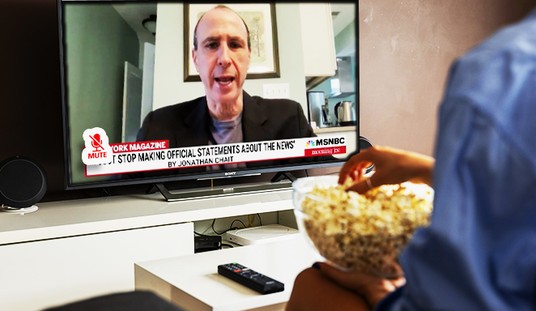Science is all too often wielded as a weapon. Whenever anyone claims, "science says," they are betraying a very real lack of understanding as to how the scientific method works; science is not a body of people or an authority — it is a tool, a method of looking at data, drawing conclusions from that data, forming hypotheses, testing those hypotheses, and seeing if others can reproduce the results. And when new data becomes available, all of the conclusions previously drawn must be evaluated, dispassionately, against that new data. Science should not — must not — be cited in support of an agenda, as that drives people claiming to be doing science to act in contradiction to the scientific method — working backward from a conclusion, discarding inconvenient data, and so on.
All of these things are happening right now in the arena of climatology.
On his Substack, science journalist Roger Pielke Jr. has described five such cases, and they merit consideration, as they show how science is being abused in pursuit of this particular agenda. Let's look at a couple.
First, a supposedly reputable science journal published a paper with a dataset that wasn't.
I have recently documented how the Proceedings of the National Academy of Sciences (PNAS) — supposedly one of the top science journals — published a paper using a “dataset” cobbled together by some interns for marketing a now-defunct insurance company. There is actually no such dataset out in the real world — it is a fiction. The paper is the only normalization study purporting to identify a signal of human-caused climate change in disaster losses and thus has been highlighted by both the IPCC and U.S. National Climate Assessment. That context makes its correction or retraction politically problematic. When I informed PNAS about the fake dataset they refused to look at it and stood behind the paper. Read about the backstory and how PNAS stonewalled any reconsideration.
There is a reason that part of the scientific process involves making the raw data available for review. That's how other researchers can attempt to reproduce the original work, reproducibility being one of the keystones of science. And when the data is faulty or, as in this case, non-existent — well, just as in software, in this case, Garbage-In, Garbage-Out (GIGO) applies. In this case, the garbage was compiled by a group of interns and used without question by the supposed researchers.
See Related: WaPo Sinks to New Level of Absurdity As They Decry Emoji Discrimination—There's a Bias Against Bugs!
Washington State Voters Get Chance to Gut Crazy 'Climate Commitment Act' This November
Second, a paper was retracted, not because it was wrong, not because new data rendered it moot, but because it didn't fit the narrative.
The science community has shown a willingness to retract a climate science paper — in this case not for being wrong in any substantive way, but instead for expressing views that are politically unhelpful. In 2022, a group of Italian scientists published a paper that summarized the IPCC’s conclusions on extreme weather trends, consistent with what you’ve been reading here at THB. The paper broke no new ground but was a useful review to have in the literature. Even so, several activist journalists and scientists demanded that it be retracted — and, remarkably, the Springer Nature journal that published the paper obliged. I heard from a whistleblower who shared all of the sordid details, where you can read about here and here.
This is, perhaps, one of the most egregious cases of politics overcoming science. This paper was retracted, not because of problems with the data, the analysis, the conclusions, or anything else that had to do with the data or the method. It was retracted due to demands by activists because it did not fit the agenda. In a way, this second case is the opposite of the first; where that one used bad data and was left in place despite that being pointed out, this study used good data and good technique but was discarded for being, to coin a term, an inconvenient truth.
Let's look at one more: Selection of data to fit the model, or working backward from a conclusion.
The top of the table won’t be a surprise to longtime readers of THB. Extreme emissions scenarios that map out implausible and even apocalyptic futures are a favorite in climate research and assessment. This space continues to be dominated by a scenario called RCP8.5 — which has coal consumption increasing more than 10x by 2100 (see figure above and all credit to my colleague Justin Ritchie). However, as the community comes to accept the ridiculousness of RCP8.5, efforts are being made to replace it with another extreme scenario — Right now that appears to be SSP3-7.0 which also foresees a massive increase in coal (~6x) and a world of about 13 billion people in 2100, far more than projected by the United Nations. You can read up on the backstory to how extreme scenarios ate climate science here and the community’s stubborn refusal to reorient here. Climate science and policy discussions are often grounded in the unreality of implausible scenarios, and course correction to date has proven impossible.
A problem, again, with the data — in that the data was selected, in advance, to reach the desired outcome.
That's not how this works. That's not how any of this works.
Too many people, especially people with an agenda, are not interested in the scientific method. They aren't interested in the truth. They aren't interested in decoupling science from politics. That's how we have come to this pass, where a loud, vocal, and at some times criminal element is demanding economic ruin, the end of our modern, technological society, and the return of mankind to the 19th century, all in the name of human-caused climate change that the data just doesn't support. The problem here lies not with the people who are doing science; it lies with the Al Gores, the John Kerrys, the Greta Thunbergs, the people who wave the term "science" like a battle ensign, and the vast majority of whom, like Al Gore, like John Kerry, have the carbon footprint of a medium-sized Third World nation.
This isn't science. This is the opposite of science. And these people are willing to destroy our modern lifestyle because of this — because of the bugaboo of anthropogenic climate change.













